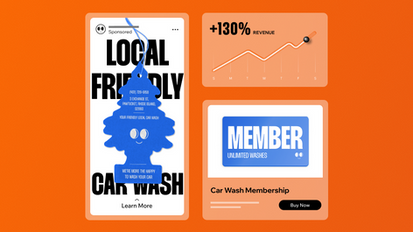Create an Ecommerce Website Checklist
Create an Ecommerce Website Trends
Create an Ecommerce Website
In today’s digital age, having a website is essential for individuals and businesses alike. However, the cost of building a website can be a major concern for many people. Fortunately, there are plenty of affordable website builders available that offer a wide range of features at budget-friendly prices.

Create an Ecommerce Website Challenges
Create an Ecommerce Website
1. Start with a unique concept
When developing a new recipe, it is important to start with a unique concept that sets your dish apart from others. Consider combining unexpected flavors, using new cooking techniques, or incorporating unusual ingredients to create a recipe that will pique your readers’ interest. You can draw inspiration from different cuisines, culinary trends, or seasonal ingredients to come up with a concept that is both original and appealing.
2. Experiment with different ingredients and flavors
Building recipes is all about experimentation and creativity. Don’t be afraid to try out new ingredients and flavor combinations to create exciting and delicious dishes. Consider incorporating fresh herbs, spices, citrus zest, or other aromatic ingredients to enhance the flavors of your recipe. Experimenting with different cooking techniques, such as grilling, roasting, or braising, can also add complexity and depth to your dishes.
3. Consider dietary restrictions and preferences
When building recipes for your website, it is important to consider the dietary restrictions and preferences of your audience. Make sure to provide options for different dietary needs, such as vegetarian, gluten-free, dairy-free, or vegan recipes. Including nutritional information, such as calorie count, macronutrients, and allergen information, can also make your recipes more accessible and appealing to a wider audience.
4. Include detailed instructions and tips
When writing out your recipes, be sure to provide detailed instructions that are easy to follow. Include step-by-step directions, cooking times, and temperatures, as well as helpful tips and tricks to ensure success in the kitchen. Consider including photos or videos to visually demonstrate each step of the cooking process, making it easier for your readers to replicate your recipes at home.
5. Test your recipes
Before publishing a new recipe on your website, be sure to test it multiple times to ensure that it is accurate and delicious. Invite friends or family members to sample your dishes and provide feedback on the taste, texture, and presentation. Adjust the seasoning, cooking times, or ingredient ratios as needed to perfect your recipe before sharing it with your audience.
6. Engage with your audience
Building recipes on your website is not just about creating delicious dishes – it is also about engaging with your audience and building a community around your food blog. Encourage your readers to leave comments, ask questions, and share their own experiences with your recipes. Consider hosting cooking demonstrations, virtual cooking classes, or recipe contests to interact with your audience and showcase your culinary skills.
Website builders are online tools that allow users to create and customize their own websites without the need for coding or design experience. These platforms offer a range of templates, drag-and-drop features, and other tools that make it easy for even the most technologically-challenged individuals to create a professional-looking website. For small businesses, website builders offer a cost-effective and user-friendly solution to establishing an online presence.
There are many website builders available on the market, each with its own unique features and pricing options. When choosing a website builder for your small business, it’s important to consider factors such as ease of use, customization options, mobile responsiveness, and customer support. To help you make an informed decision, here are some of the top website builders for small businesses:
1. Wix: Wix is one of the most popular website builders on the market, known for its user-friendly interface and extensive customization options. With Wix, small business owners can choose from hundreds of templates, customize their site with drag-and-drop tools, and even add features such as e-commerce functionality and contact forms. Wix also offers excellent customer support and a mobile-responsive design, making it a great option for small businesses looking to establish a professional online presence.
2. Squarespace: Squarespace is another website builder that is ideal for small businesses looking for a sleek and modern design. Squarespace offers a range of professionally-designed templates that can be easily customized to suit your brand. The platform also includes features such as e-commerce functionality, SEO tools, and analytics tracking. While Squarespace may have a steeper learning curve than some other website builders, its beautiful design options make it worth the investment for small businesses looking to make a strong visual impression online.
3. Shopify: If your small business focuses on e-commerce, Shopify is a top choice for building an online store. Shopify offers a range of customizable templates, payment processing options, and inventory management tools to help small businesses succeed in the online marketplace. With Shopify, small business owners can easily set up their store, add products, and track sales all in one platform. While Shopify does have a monthly fee, the robust features and support make it a worthwhile investment for small businesses looking to sell products online.
4. WordPress: WordPress is a popular website builder that is widely used by small businesses and bloggers alike. With WordPress, users have access to thousands of themes and plugins that can help customize their site to fit their needs. While WordPress does have a steeper learning curve than some other website builders, its flexibility and scalability make it a powerful tool for small businesses looking to grow their online presence. WordPress also offers excellent SEO capabilities, making it a great choice for businesses looking to increase their visibility in search engine results.
5. Weebly: Weebly is an affordable website builder that is perfect for small businesses on a budget. Weebly offers a range of customizable templates, drag-and-drop tools, and e-commerce functionality to help small businesses create a professional online presence. Weebly also offers built-in SEO tools, analytics tracking, and mobile responsiveness, making it a great all-in-one solution for small businesses looking to launch their website quickly and easily.

Create an Ecommerce Website Best Practices
Create an Ecommerce Website
In conclusion, no code web builders have transformed the web development industry by providing a user-friendly, cost-effective, and efficient solution for building customized websites. This innovative technology has empowered individuals and businesses of all sizes to create professional-looking websites without the need for coding skills or technical expertise. No code web builders offer a wide range of benefits, including time and cost savings, flexibility and customization, user-friendliness, and ease of maintenance. As the demand for no code web builders continues to rise, it is clear that this technology will play a key role in shaping the future of web development.


